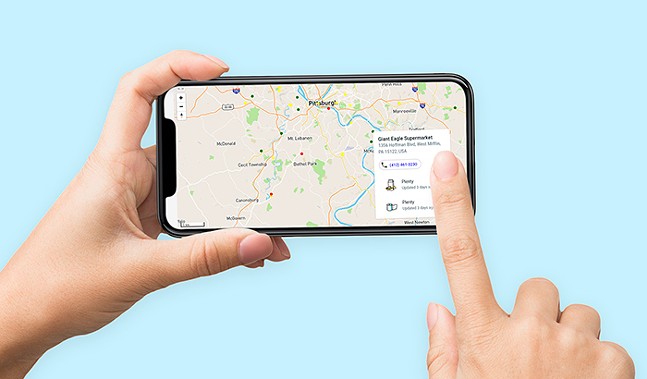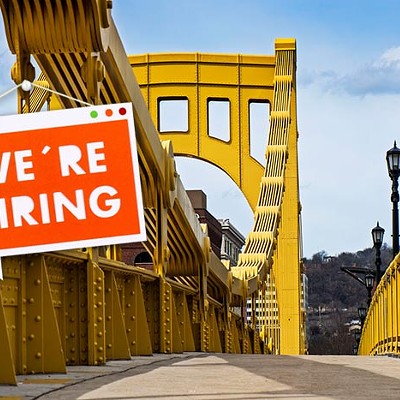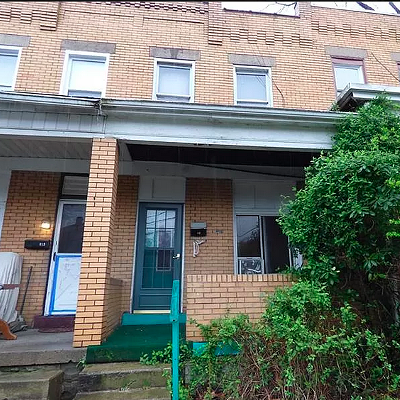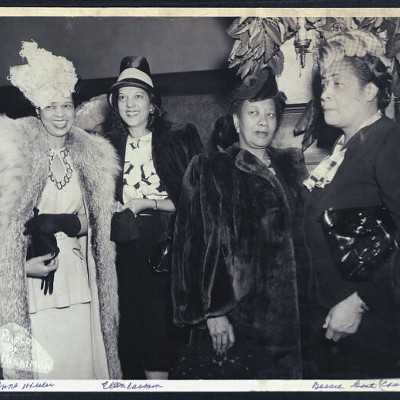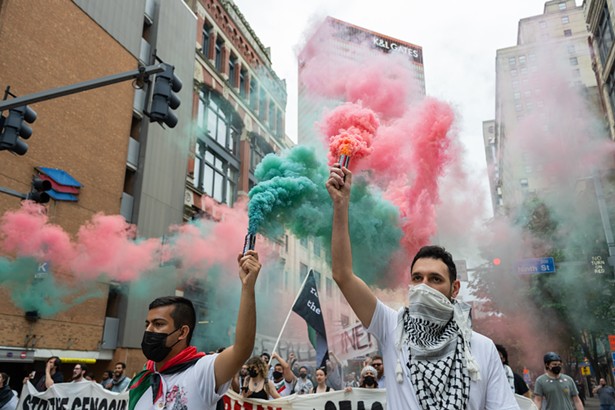However, many of the essential supplies are out there; they are just at stores and businesses that might not immediately come to mind. For example, City Paper found that several small markets and grocery stores had plenty of essential supplies.
The issue is keeping track of all those other smaller stores and businesses that don’t provide any information online about what is in-stock. Smaller stores, restaurants, and other businesses may have the essential goods people need, but there are few ways for people to discover what's in stock.
But an app with local ties is hoping to make it easier to find those essential goods. The OurStreets app was first introduced to Pittsburgh when bike advocates were counting vehicles parked in Pittsburgh bike lanes. In fact, documenting moving violations through crowdsourcing is the original mission of the OurStreets app, which is based out of Washington, D.C.
But OurStreets president Mark Sussman wanted to give the app more purpose during the coronavirus pandemic. After all, most vehicles are completely off the road because of business closures.The OurStreets Supplies map is LIVE! 📍🧻 Look for essential supplies like toilet paper and fresh produce at https://t.co/ERYEOCtlHd. Then use OurStreets to share what you find on your next essential shopping trip and help prevent the spread of COVID-19—download OurStreets today! pic.twitter.com/cEp8VgFGwd
— OurStreets (@OurStreetsApp) April 8, 2020
Now the temporary mission of OurStreets is to help document where people can buy toilet paper and other essential goods in cities across the country. And it will be accomplished through crowdsourcing.
Sussman is asking people to download the app, which is free, and when they are out at stores and see a shelf stocked with toilet paper, they should submit that information into the app.
“If a restaurant is acting as a grocery store, we want to let consumers know that,” says Sussman. “It’s about reconnecting the supply chain in creative ways and giving people information so they can make rational decisions in the marketplace.”
The OurStreets app is seeking information on a variety of goods, but has specific tabs for toilet paper, personal hygiene, fresh produce, eggs and dairy, hand soap, and sanitizer. Users can also add information on whether shoppers in the stores are adhering to social distancing.
Sussman is hoping to spread the word of the app so that information from businesses other than the conventional grocery stores and big-box stores is inputted into the app.
“We are crowdsourcing for essential supplies,” says Sussman.
Sussman says OurStreets has more than 11,000 users nationwide. The app launched as an essential goods crowdsourcing tool about a week ago, and Sussman says there has been “huge traction” for usage in Pittsburgh, Cleveland, and the D.C. metro area.
Pittsburgh Mayor Bill Peduto has shared the app with his Twitter followers, and local nonprofit Bike Pittsburgh has also boosted the message.
Sussman says that OurStreets users in Pittsburgh are not limited to the city and that people are using the app all over the region. The app currently shows input information in Cranberry, the Mon Valley, Beaver Falls, and Washington, Pa.Hey Pittsburgh. Get useful information. Give useful information. Share useful information. https://t.co/jqBhBwps0D
— bill peduto (@billpeduto) April 8, 2020
The amounts of supplies are indicated by color: Green means many supplies, yellow is more uncertain, and red means little-to-no supplies.
As of today, many users in Pittsburgh are still mostly inputting information from big grocers and big-box stores, but there are some locatons people might not think of. For example, as of three days ago, the Family Dollar in Sheraden had plenty of toilet paper.
Sussman notes that shoppers should benefit by thinking outside of the box when looking for essential goods. He says that a Mediterranean grocery in Raleigh contacted him to let him know how many groceries the store had.
Moving forward, OurStreets is also connecting directly with some distributor and brick-and-mortar retailers that have plenty of supplies but are struggling to sell them due to the coronavirus closures.
Sussman says OurStreets is currently working with DH Bertenthal and Sons, a cleaning supply distributor in South Fayette, to help get their surplus of supplies into the hands of needy retailers and customers.
“They have a huge supply of cleaning products because a lot of their other commercial customers closed down,” says Sussman. “And at the same time, many consumer places are overwhelmed with need.
Sussman wants the app to go beyond crowdsourcing and says it can help connect businesses that currently lack the ability to efficiently access the online marketplace. He wants it to act sort of like Amazon, but where businesses can communicate with each other and direct customers directly to their locations, not where they have to become a part of Amazon’s website.
“The brick-and-mortar piece is so vital to the economy. We should connect to them,” says Sussman. “We have to make sure that our supply chain is connected, and it can't just be virtual.”
The OurStreets app can be downloaded at ourstreets.com. Users without a smartphone or device can also access the map on the app’s website by clicking the “Supplies Map” tab.

